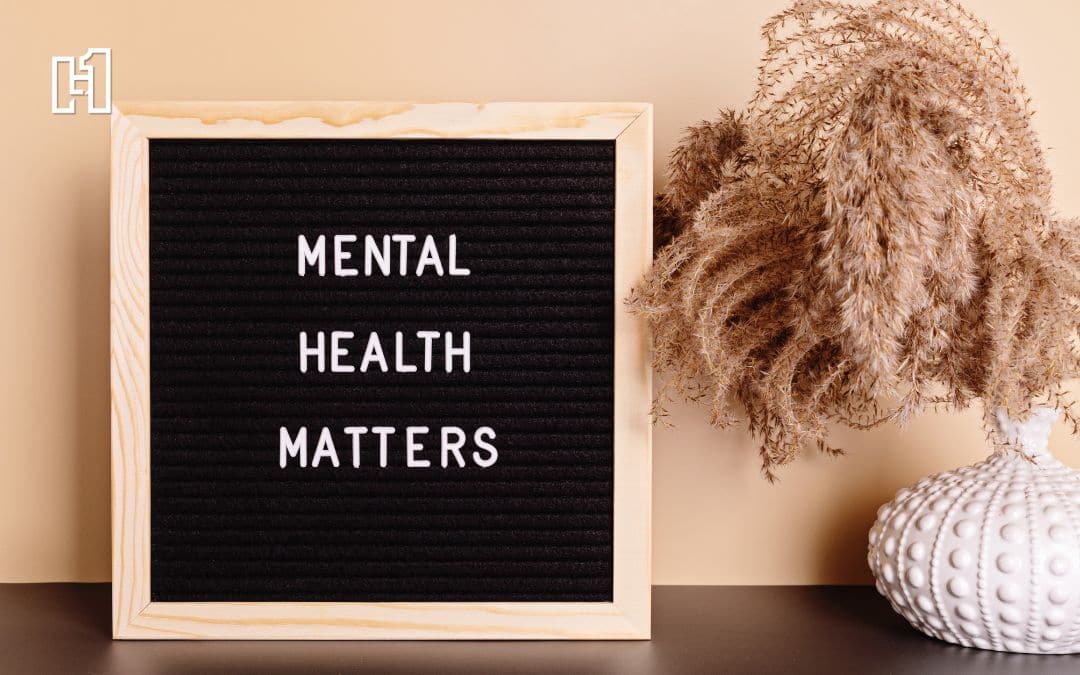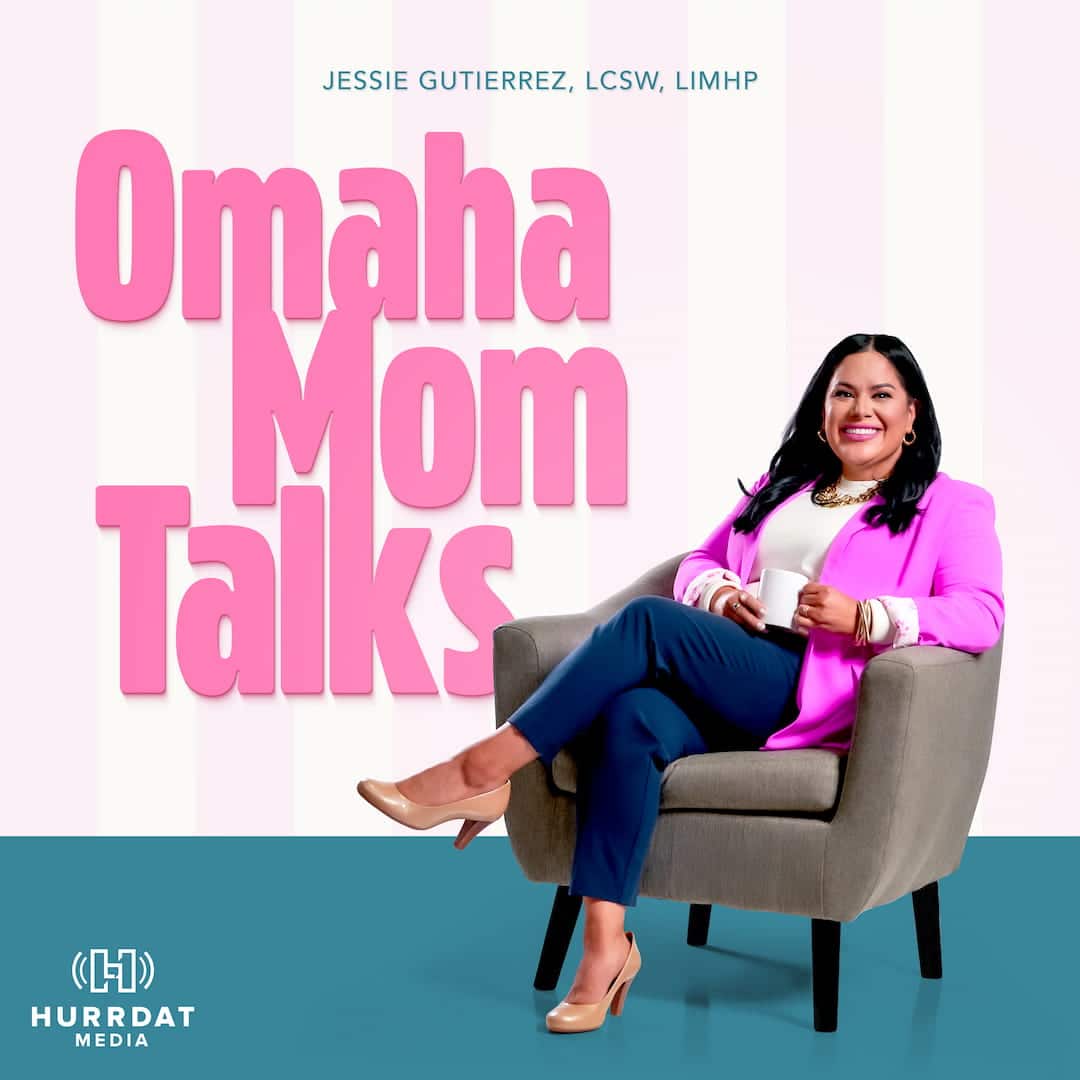Navigating Perinatal Mental Health: Insights from Rachel Brabec
The journey into motherhood is a profound and transformative experience. For many, it comes with immense joy, but it can also bring unexpected challenges, particularly when it comes to mental health. In Episode 2 of Omaha Mom Talks, host Jessie Gutierrez sits down with Rachel Brabec, a licensed mental health practitioner specializing in perinatal mental health, to discuss the importance of understanding and addressing perinatal mood and anxiety disorders (PMADs).
Meet Rachel Brabec
Rachel’s journey to becoming a perinatal mental health specialist is as inspiring as it is personal. Originally from Cheyenne, Wyoming, she has spent the last 16 years in Omaha, where she built her career in mental health after earning degrees in criminal justice and community counseling. As a mother of three, Rachel draws from her own postpartum experiences to provide compassionate, expert care to women navigating pregnancy and postpartum mental health challenges.
She credits much of her advanced knowledge to her training with Postpartum Support International and mentorship under Karen Kleiman, a trailblazer in maternal mental health. This passion led Rachel to co-found a perinatal consultation group in Omaha, creating a supportive network of professionals dedicated to helping mothers thrive.
What is Perinatal Mental Health?
The term “perinatal mental health” encompasses emotional and psychological well-being during pregnancy and the first year postpartum. Rachel and Jessie explore the spectrum of PMADs, including postpartum depression, anxiety, obsessive-compulsive disorder (OCD), and post-traumatic stress disorder (PTSD). They stress that these conditions are treatable, and seeking support is a crucial step toward recovery.
Understanding PMADs
PMADs affect about 1 in 5 women and 1 in 10 non-birthing partners. Rachel and Jessie highlight the importance of recognizing the signs:
- Postpartum Depression (PPD): Characterized by persistent feelings of sadness, hopelessness, and guilt, PPD can impair a mother’s ability to function and connect with her baby. While some moms experience fleeting “baby blues,” lasting more than two weeks may signal a need for professional support.
- Postpartum Anxiety: This often involves racing thoughts, excessive worry, and a need for control. For some, these symptoms become paralyzing, disrupting sleep, daily routines, and relationships.
- Perinatal OCD: Intrusive thoughts about harm, paired with compulsive behaviors to mitigate perceived risks, can be distressing. Rachel emphasizes that these thoughts are symptoms, not reflections of a mother’s character or intentions.
- Postpartum PTSD: Traumatic birth experiences can lead to flashbacks, avoidance, and heightened vigilance. Mothers experiencing PTSD may struggle to revisit places or conversations associated with their trauma.
The Weight of Silent Struggles
Rachel shares her personal postpartum journey, painting a vivid picture of the overwhelming anxiety she faced as a new mom. She recounts moments of paralyzing fear, such as worrying about the sharp edges of countertops as a potential threat to her baby. This emotional weight, compounded by a knee injury and subsequent surgery, underscored the importance of support and professional guidance.
Jessie reflects on her own postpartum experiences, recalling how a simple gesture from Rachel—a food drop-off and a reassuring hug—provided immense comfort. This anecdote underscores the need for community and connection during postpartum recovery.
Debunking Myths and Encouraging Action
One common myth Rachel addresses is the belief that “good moms don’t need help.” In reality, seeking support is a sign of strength, not weakness. Jessie reminds listeners that taking care of your mental health is integral to taking care of your baby and family.
For those hesitant to seek help, Jessie suggests starting the conversation with any trusted healthcare provider, whether it’s an OB-GYN, pediatrician, or primary care doctor. Many pediatricians now screen for PMADs, recognizing that a healthy mom is essential for a healthy baby.
Available Resources
Rachel and Jessie recommend the following resources for moms and families:
- Postpartum Support International (PSI): Offers free online support groups tailored to specific needs, such as NICU moms or non-birthing partners.
- Local Omaha Groups: Organizations like Milk Works and Lean In provide free support sessions for new parents.
- Mental Health Providers: Seek therapists trained in perinatal mental health for specialized care.
Rachel also encourages open communication with partners, family, and friends, stressing that support from a trusted network can make all the difference.
Why This Conversation Matters
The episode concludes with a powerful reminder: perinatal mental health struggles are common but highly treatable. Normalizing these conversations and providing accessible resources helps mothers recognize that they are not alone.
As Rachel eloquently puts it, “This is not you. This is a symptom.” With the right help, mothers can navigate these challenges and rediscover joy in their journey.
For more insights and to connect with Rachel, visit her profile on Psychology Today or follow Omaha Mom Talks for future episodes. If you or someone you know is struggling, remember: help is available, and you deserve it.
This blog post is based on a transcript from the Omaha Mom Talks podcast episode released on January 15th 2025.
Omaha Mom Talks is all about creating connection for moms in Omaha, Nebraska. Join your host, Jessie Gutierrez, a mental health therapist and mom of two, to explore the joys and struggles of motherhood, the importance of mental health, and the best Omaha has to offer. Whether you’re a new mom or a seasoned pro, each episode brings you expert advice, community stories, and local gems to support you on your motherhood journey.
Edited by Grace Dunbar



0 Comments